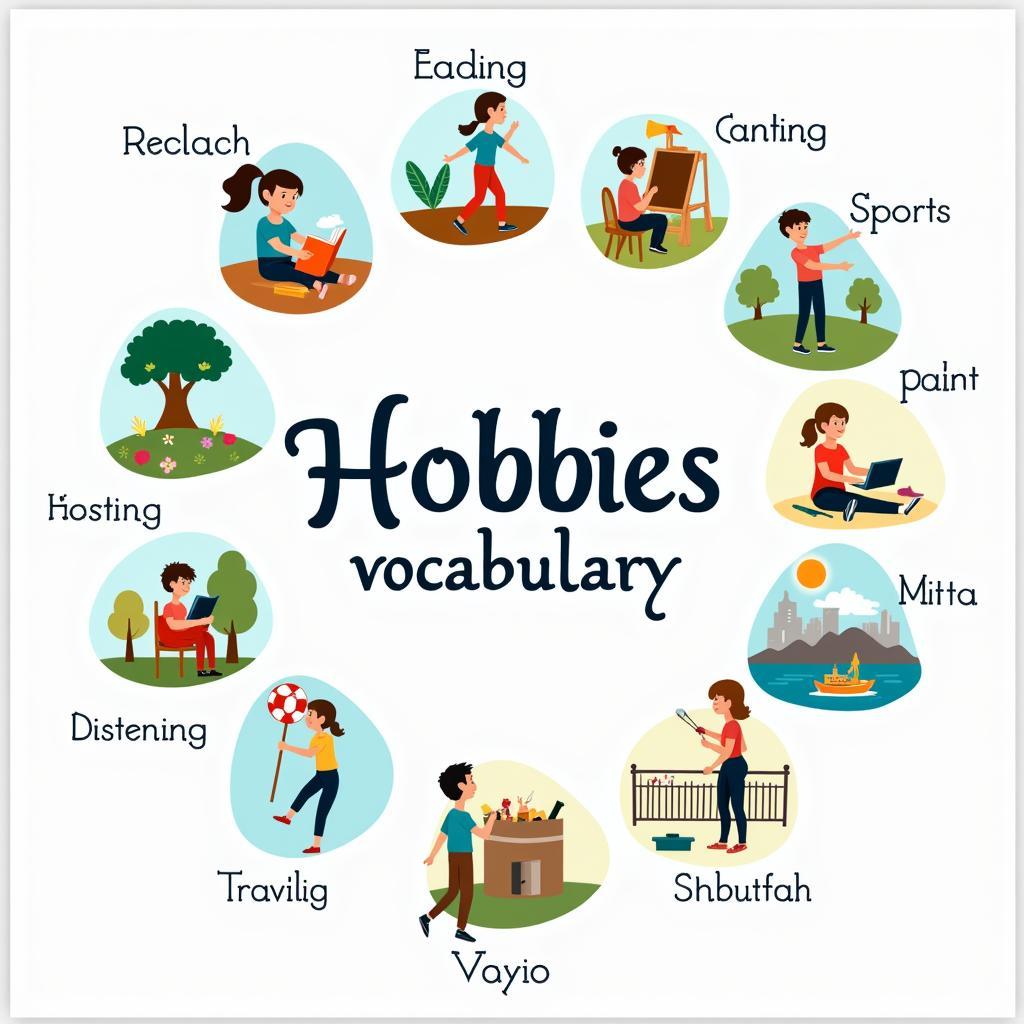“Thích” is a common Vietnamese word, but finding the perfect English equivalent can be tricky. This guide will explore various ways to express “thích” in English, depending on the context and nuance you want to convey.
Understanding the Nuances of “Thích”
“Thích” can express a range of emotions, from mild interest or enjoyment to strong liking or even romantic feelings. Therefore, a simple one-word translation doesn’t always capture the full meaning. Understanding the specific context is crucial for choosing the right English word or phrase.
Common English Translations for “Thích”
Expressing General Liking
- Like: This is the most common and versatile translation. “I like this song” is a straightforward way to express enjoyment.
- Enjoy: This emphasizes the pleasure or satisfaction derived from something. “I enjoy reading books” suggests a deeper appreciation than simply liking them.
- Be fond of: This implies a gentle affection or preference for something. “She is fond of classical music” suggests a long-standing appreciation.
- Be into: This informal expression indicates a strong interest or enthusiasm. “He’s really into photography” suggests a passionate hobby.
Expressing Romantic Interest
- Be attracted to: This indicates a physical or emotional attraction to someone. “I’m attracted to her sense of humor” highlights a specific quality.
- Have a crush on: This informal phrase describes a lighthearted infatuation. “He has a crush on his classmate” suggests a budding romantic interest.
- Be interested in: This can express romantic interest, especially when combined with other cues. “She seems interested in him” hints at a potential connection. You might be interested in giải thích phim your name.
Expressing Preferences
- Prefer: This indicates a choice between two or more options. “I prefer tea over coffee” clearly states a preference.
- Favor: This suggests a slight bias towards something. “He favors spicy food” implies a general preference, not an exclusive one.
- Would rather: This expresses a stronger preference, often implying a comparison. “I would rather stay home tonight” indicates a clear choice.
 Expressing "Thích" in Different Contexts
Expressing "Thích" in Different Contexts
Choosing the Right Word: Context is Key
The best translation for “thích” depends heavily on the context. Consider these examples:
- “Tôi thích ăn kem.” translates to “I like eating ice cream.” (General liking)
- “Tôi thích anh ấy.” could translate to “I like him” (if it’s platonic) or “I’m interested in him” (if it’s romantic).
- “Tôi thích màu xanh.” translates to “I like the color blue.” (Preference)
- “Tôi thích đi du lịch.” translates to “I enjoy traveling.” (Enjoyment)
Tips for Mastering “Thích” in English
- Pay attention to the surrounding words and the overall situation. This will help you determine the intended meaning of “thích.”
- Don’t be afraid to ask for clarification. If you’re unsure about the nuance, asking a native speaker can be helpful.
- Practice using different words and phrases in different contexts. This will help you develop a natural feel for the language. Perhaps thích trí huệ chùa pháp tạng can offer some insights.
 English Vocabulary for Hobbies and Interests
English Vocabulary for Hobbies and Interests
Conclusion
Mastering the different ways to express “thích” in English can significantly enhance your communication skills. By understanding the nuances and paying attention to context, you can choose the right words to convey your meaning accurately and effectively. Now that you know how to say “thích,” you can express your likes and preferences with confidence! If you are interested in other things, check out đại lão hòa thượng thích quảng độ.
FAQ
- What’s the most common translation for “thích”? (Like)
- How do I express romantic interest using “thích”? (Be attracted to, have a crush on, be interested in)
- What’s the difference between “like” and “enjoy”? (Enjoy implies deeper appreciation)
- How can I learn more about expressing preferences in English? (Study words like prefer, favor, and would rather)
- Why is context important when translating “thích”? (Because “thích” has multiple meanings)
- Is “like” always the best translation for “thích”? (No, it depends on the context)
- What if I’m unsure about the correct translation? (Ask a native speaker for help)
Other Questions You Might Have
- How to express different levels of liking in English?
- What are some other Vietnamese words that are difficult to translate?
- How can I improve my overall English vocabulary?
- What are some resources for learning English idioms and expressions? You might find bts thích ai interesting.
Other Articles on Our Website
- Learning English for Beginners
- Common Vietnamese-English Translation Mistakes
- Improving Your English Pronunciation
When you need support, please contact Phone Number: 0915063086, Email: thathinh@gmail.com Or visit the address: LK 364 DV 08, Mau Luong Urban Area, Ha Dong, Hanoi 12121, Vietnam. We have a 24/7 customer care team. Check out this interesting article: cách kihcs thích hoa mai nở khi trời rét.